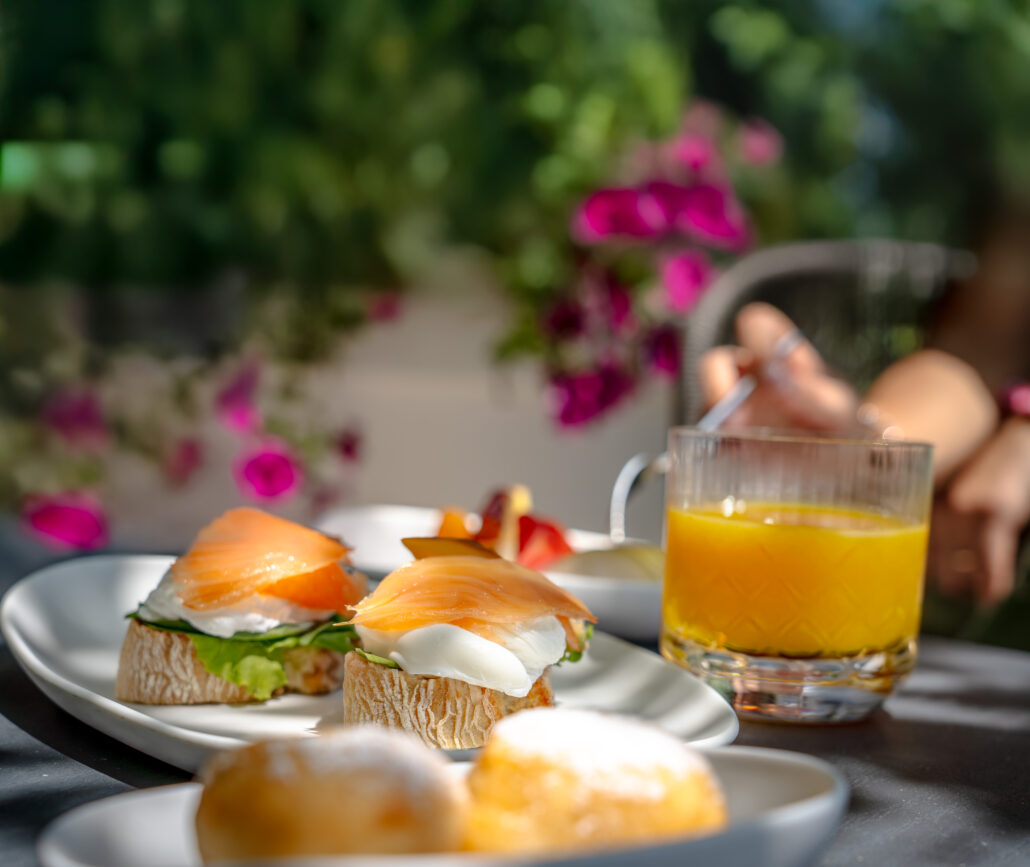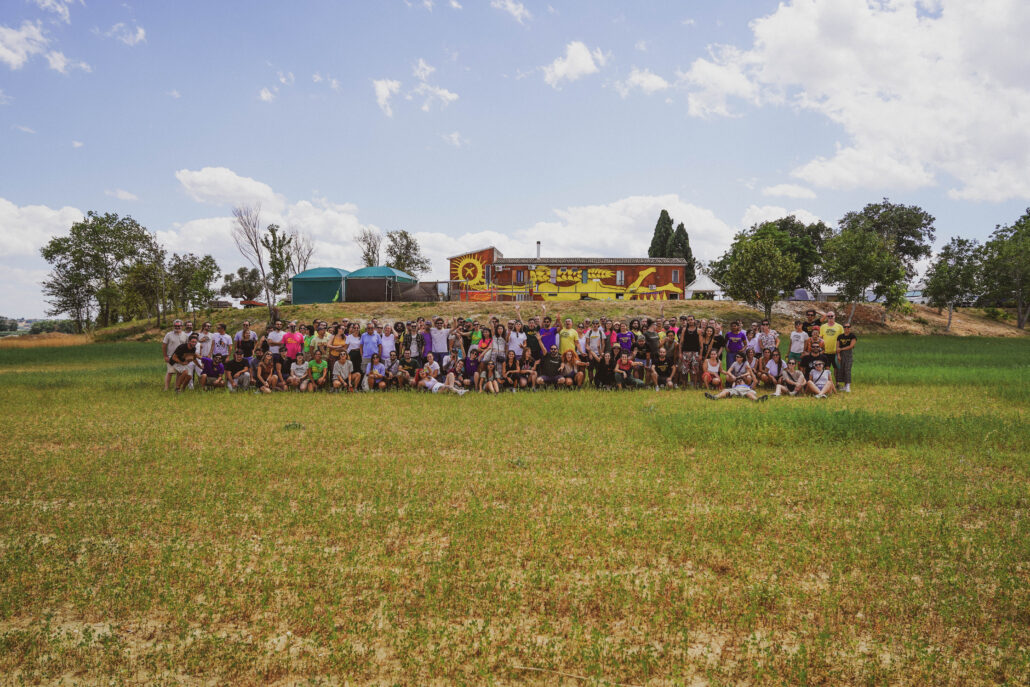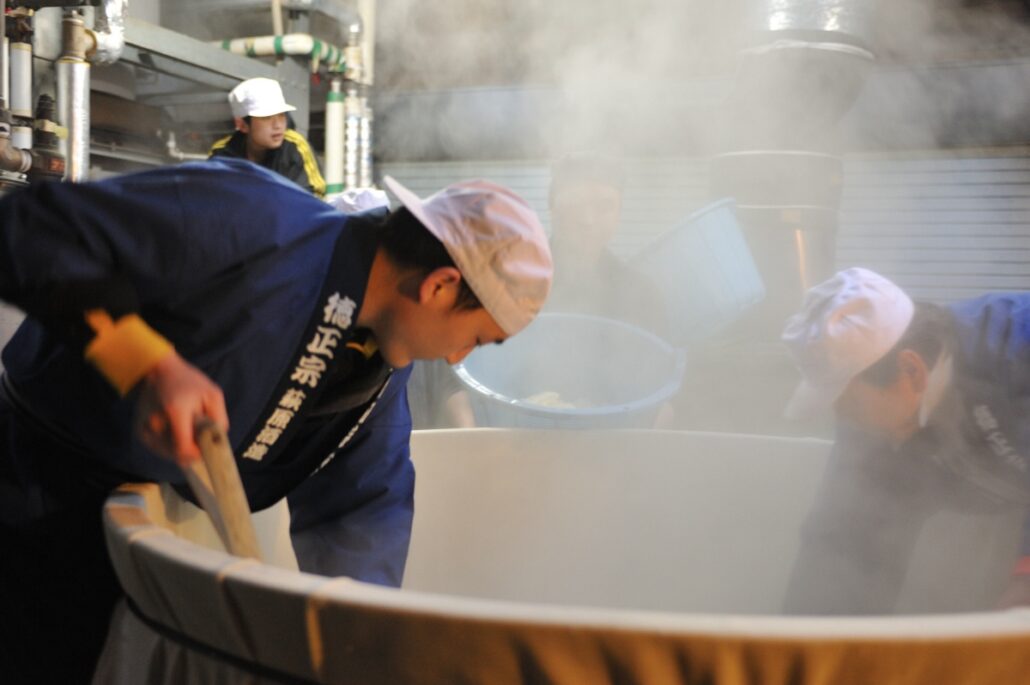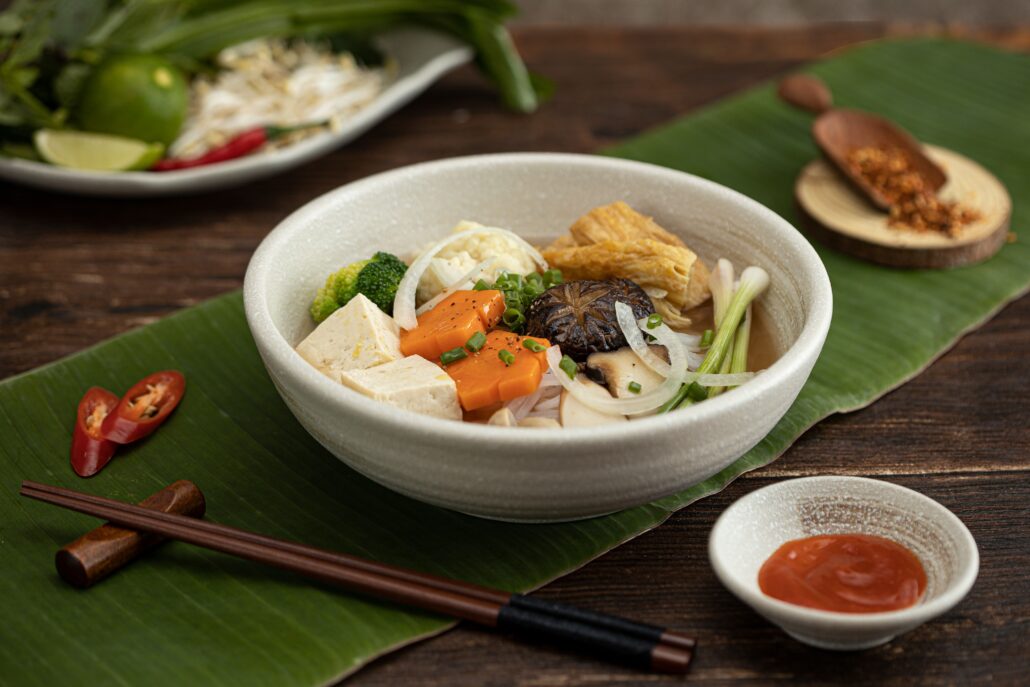There’s a recurring image in films set among the skyscrapers of Manhattan: the protagonist biting into a bagel & lox, balancing precariously between yellow cabs and steaming cups of coffee. Morning smoked salmon (lox) has thus become almost a metropolitan archetype. It’s not just fashion: with its good fats that satisfy without weighing you down, it’s the perfect companion for those who need to keep pace with a city that never sleeps. It speaks of modernity, of speed, and above all of internationality: the language every cosmopolitan hotel wants to express in its offerings. With apologies to eggs, the undisputed stars of any savory breakfast: today it’s time to give the spotlight to their most successful partner. Because unity is strength, and on the plate it gives just the sprint you need to face the hours ahead.
Salmon at breakfast divides opinion: there are those who consider it an unnecessary luxury, and those who see it instead as the smartest form of morning energy. After all, the nutrients speak for themselves: rich in high-quality protein, Omega-3 fatty acids, and vitamins D and B12. In its smoked version it becomes perfect: a ready-to-eat product, refined without cooking, that slips naturally into place anywhere, even with eyes still half-closed. And above all, it’s an icon of versatility: Instagrammed on an avocado toast with poached egg, elegant on rye bread with pickles and dill, aristocratic atop blinis with cream cheese. In other words, the pink king tastes of the world and gives that precious sensation of having taken time for yourself.
And it’s also, and perhaps above all, for this reason that in hotel breakfasts the famous pink fish (which even boasts a color of its own) dominates the grand buffets and the best à la carte choices, becoming almost a status quo.
Hotel breakfast has a peculiarity: it is the only meal that the guest is certain to consume on the premises.
It is therefore a moment of truth, a testing ground that can raise or lower expectations for the entire stay. If the standardized buffet of the 1990s focused on quantity, today the paradigm has shifted: the focus is on quality, freshness, authenticity. Every choice communicates a positioning. Increasingly, high-end hotels are integrating premium seafood products into their selections: they speak the language of internationality and leave room for creativity.
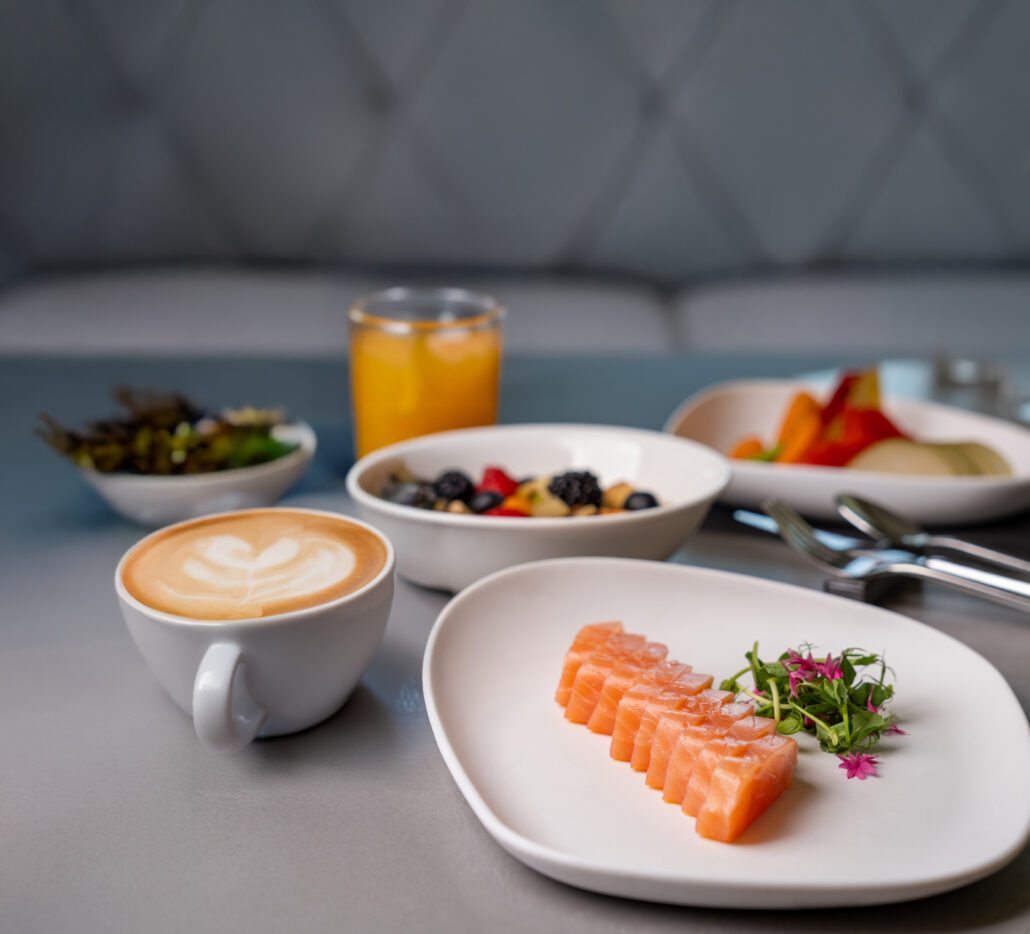
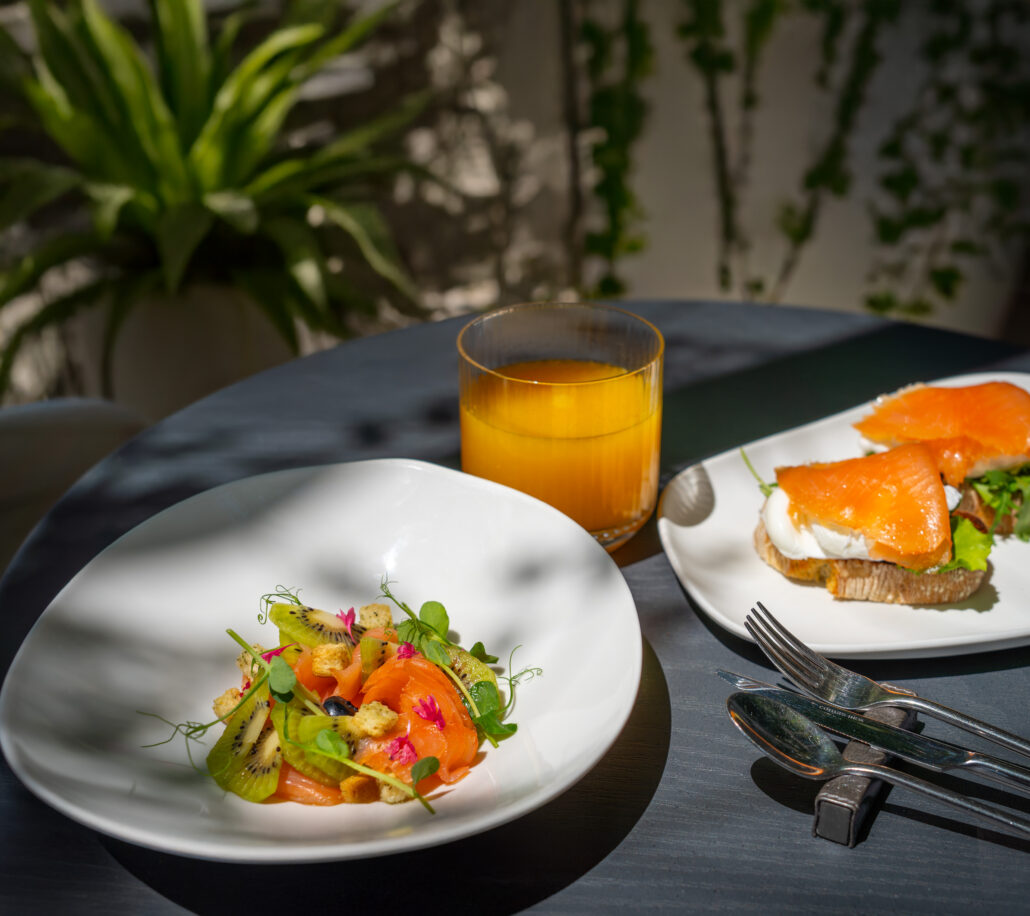
This is where the Mosaico Food Experience line of the dynamic Marche-based company La Nef (which we talked about here) comes into play, and in particular the Coda Nera smoked salmon, available in Classic, Riserva, Gran Riserva, and Wild versions. Not just simple ingredients, but true narrative tools. Coda Nera is the dream of producing the finest smoked salmon with passion and ongoing research, brought to life by the Palazzo family in 2012 as a luxury brand aimed at the HoReCa sector. The utmost attention to the selection of raw materials is one of its crucial features: the fish come from farms in the far north of Norway (in the Skjervøy area), where strong Atlantic currents and low water temperatures allow the salmon to grow very slowly.
Coda Nera has chosen to strictly respect Norwegian legislation on fish and water welfare, and all salmon are raised in the open sea, under the best environmental conditions (with a small number of specimens in very large spaces, allowing for a completely natural, sustainable development cycle that respects both the environment and the wellbeing of the salmon) and according to the strictest safety criteria. Time and space are essential: the fish swim freely in cold, deep waters, and every aspect is constantly monitored to ensure safe and gradual growth in their natural habitat. This extreme care for every detail of development is indispensable. The raw material is then processed fresh, never frozen, salted by hand, and smoked over beechwood, following an ancient Baltic tradition.
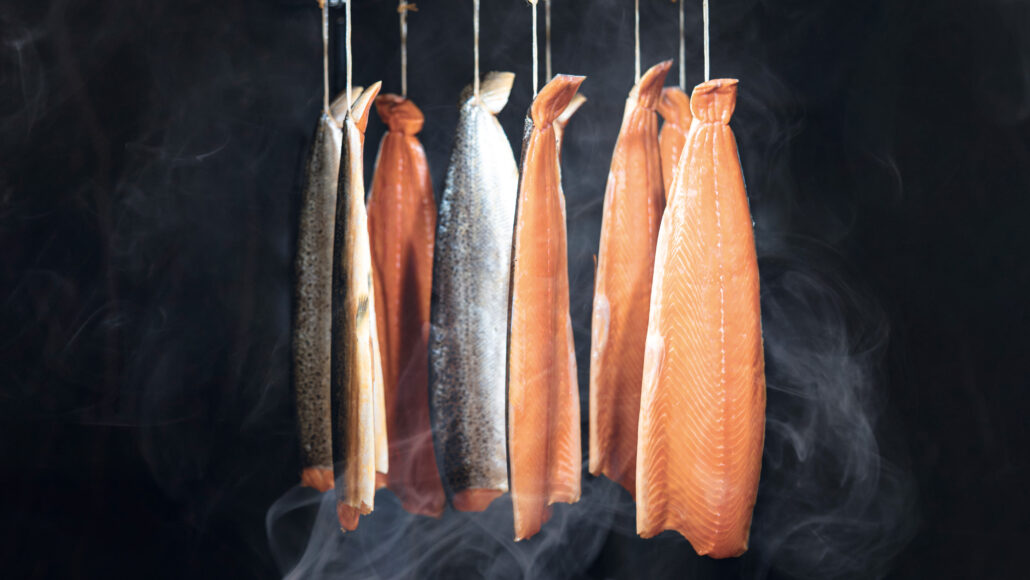
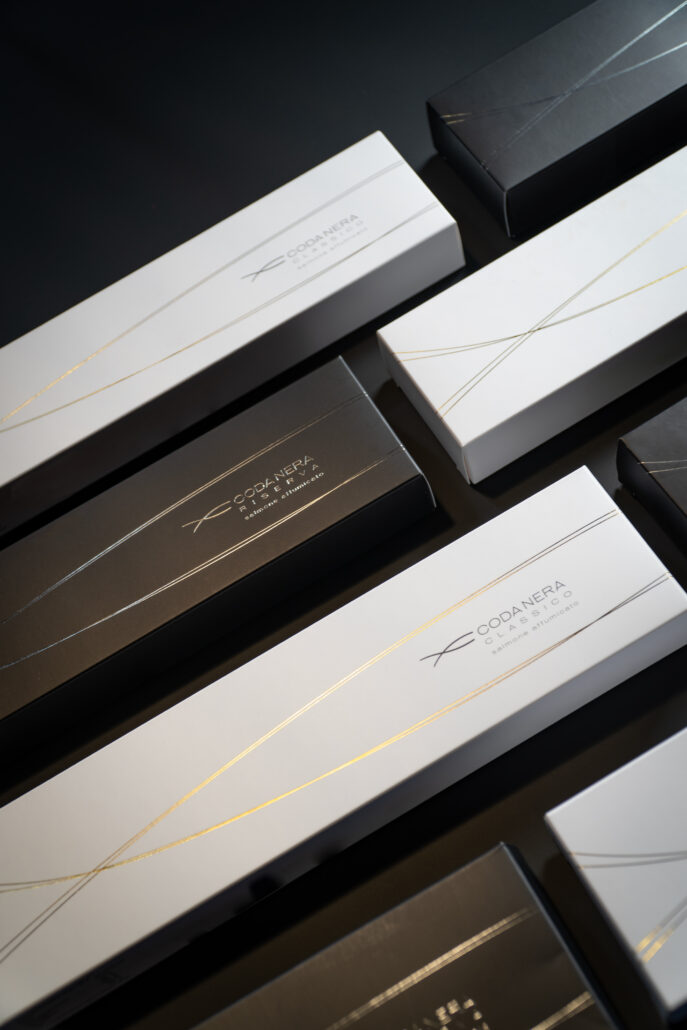
The name comes from a legend of the ancient villages along the lower Volga that told of the adventures of extraordinary animals: the Black-Tailed Salmon. Baltic tradition recounts that once the Baltic fishermen had filleted the fish, they would hang it in old masonry ovens, tying a rope around the tail to smoke and dry it, and time would do the rest. The Coda Nera processing method is inspired precisely by this practice, with smoking still carried out by tying the fish by the tail (rather than placing them on racks), then hanging them to dry and smoke for a long time according to the “à la ficelle” method, over a wood fire. The master smoker personally oversees every stage of this artisanal process.
This year, the range has been enriched with Coda Nera Sockeye, wild salmon from Alaska with naturally dark flesh and refined flavor, sourced from some of the healthiest populations on the planet. It is no surprise that renowned breakfasts, such as that of the Grand Hotel Principe di Piemonte in Viareggio, have chosen Coda Nera salmon as the star of their spectacular offering, beloved, award-winning, and also open to external guests. The direction is clear: breakfast is no longer an accessory but a business card, a strategic tool to communicate an identity, a story built from details like this to ensure that a stay remains memorable. And breakfast, today more than ever, is the detail that makes all the difference.
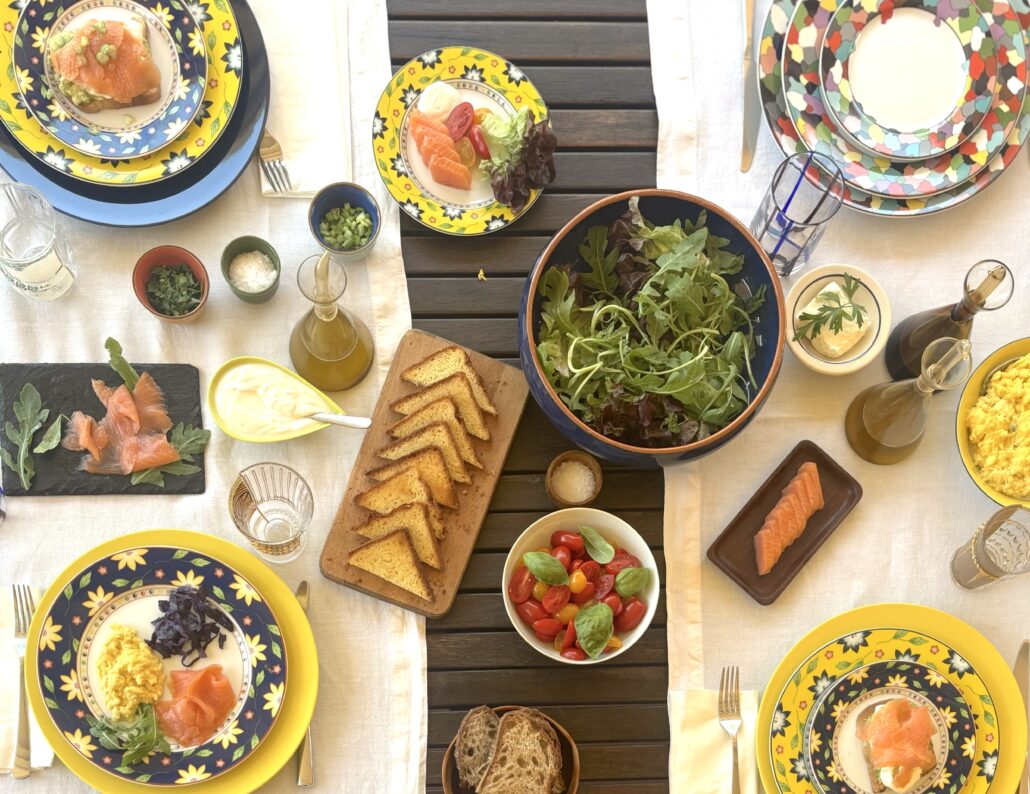
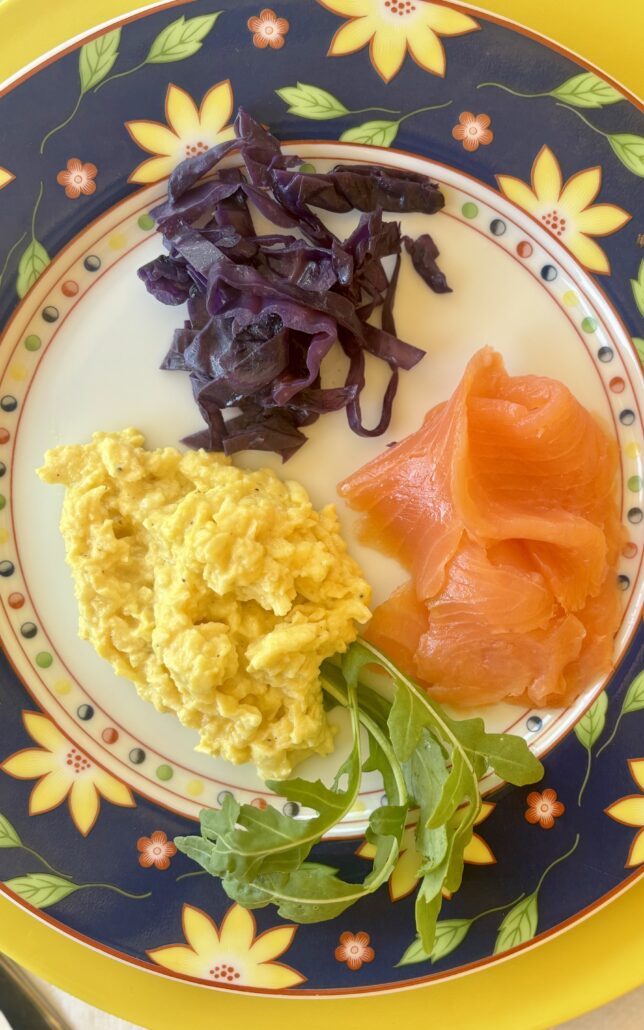
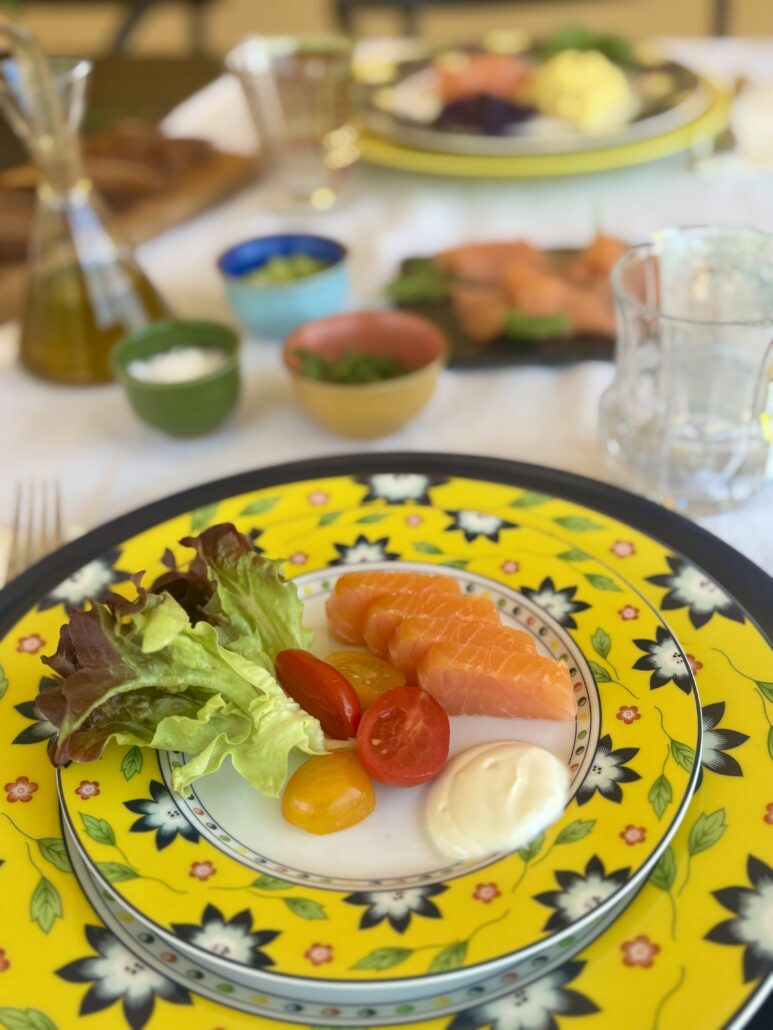
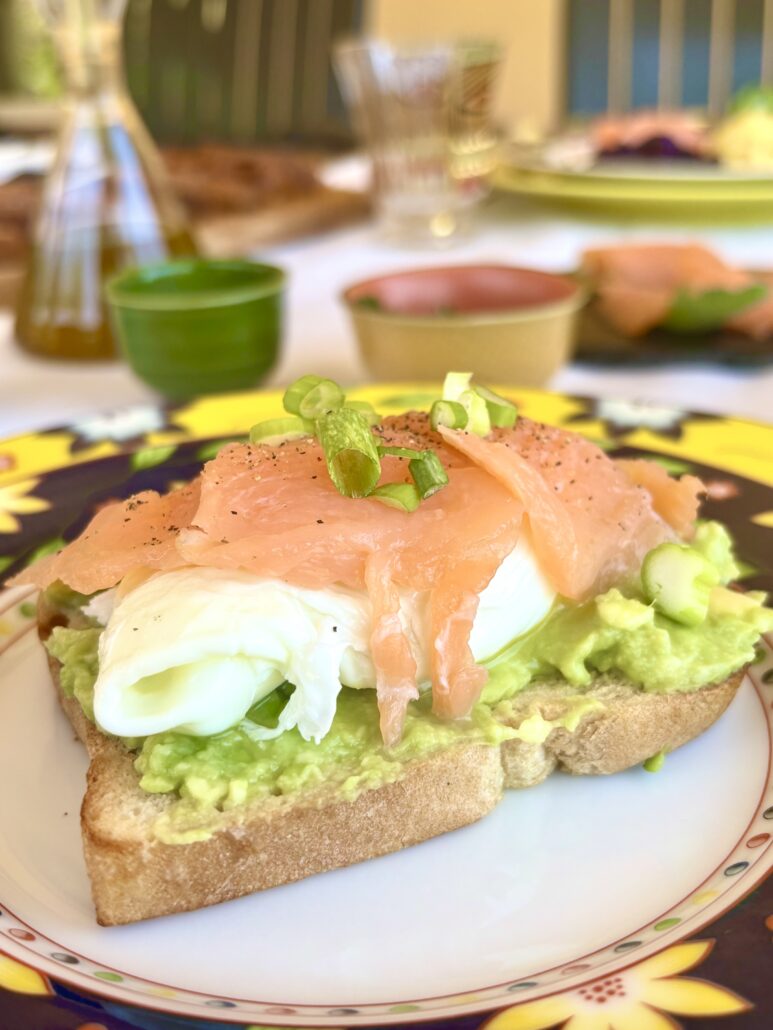
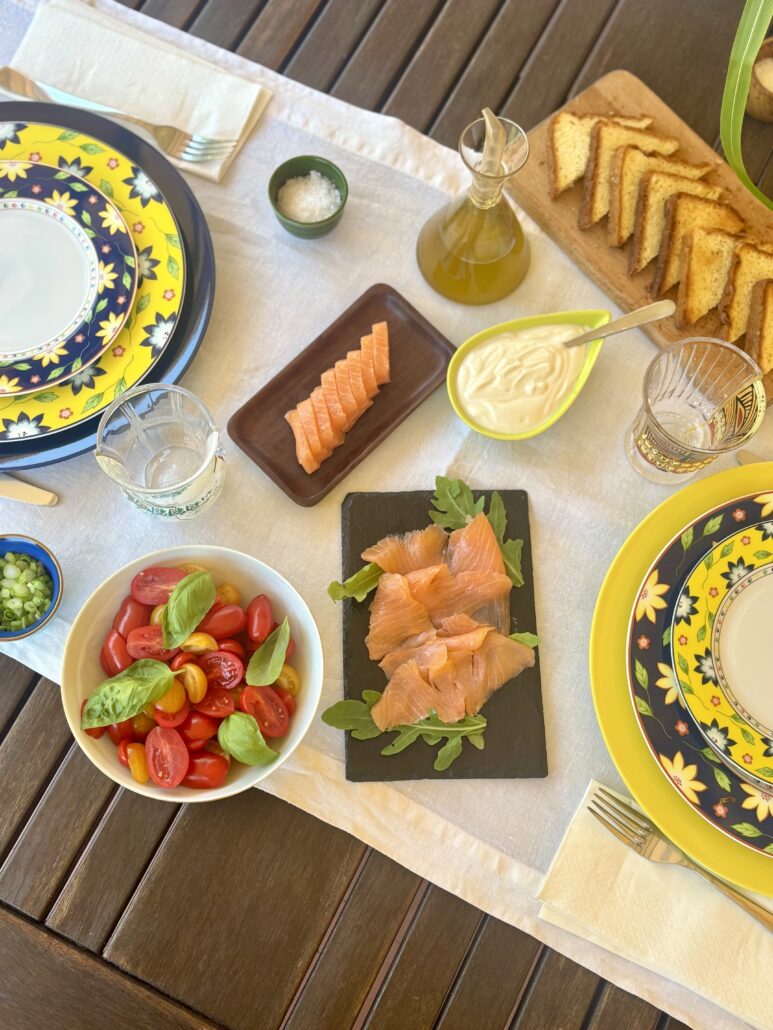
(the photos in this gallery are part of a slow, late breakfast in the editorial office)
And the beauty of salmon lies in its ability to cross cultures.
From the New York bagel to Scandinavian rye bread, all the way to the buffets of grand hotels: smoked salmon has become the true lingua franca of the global breakfast. And in major international hotels it serves as a bridge between East and West, between tradition and modernity. It is pleasure and health, luxury and lightness: the emblem of a hospitality that speaks to the world. And to generations.


